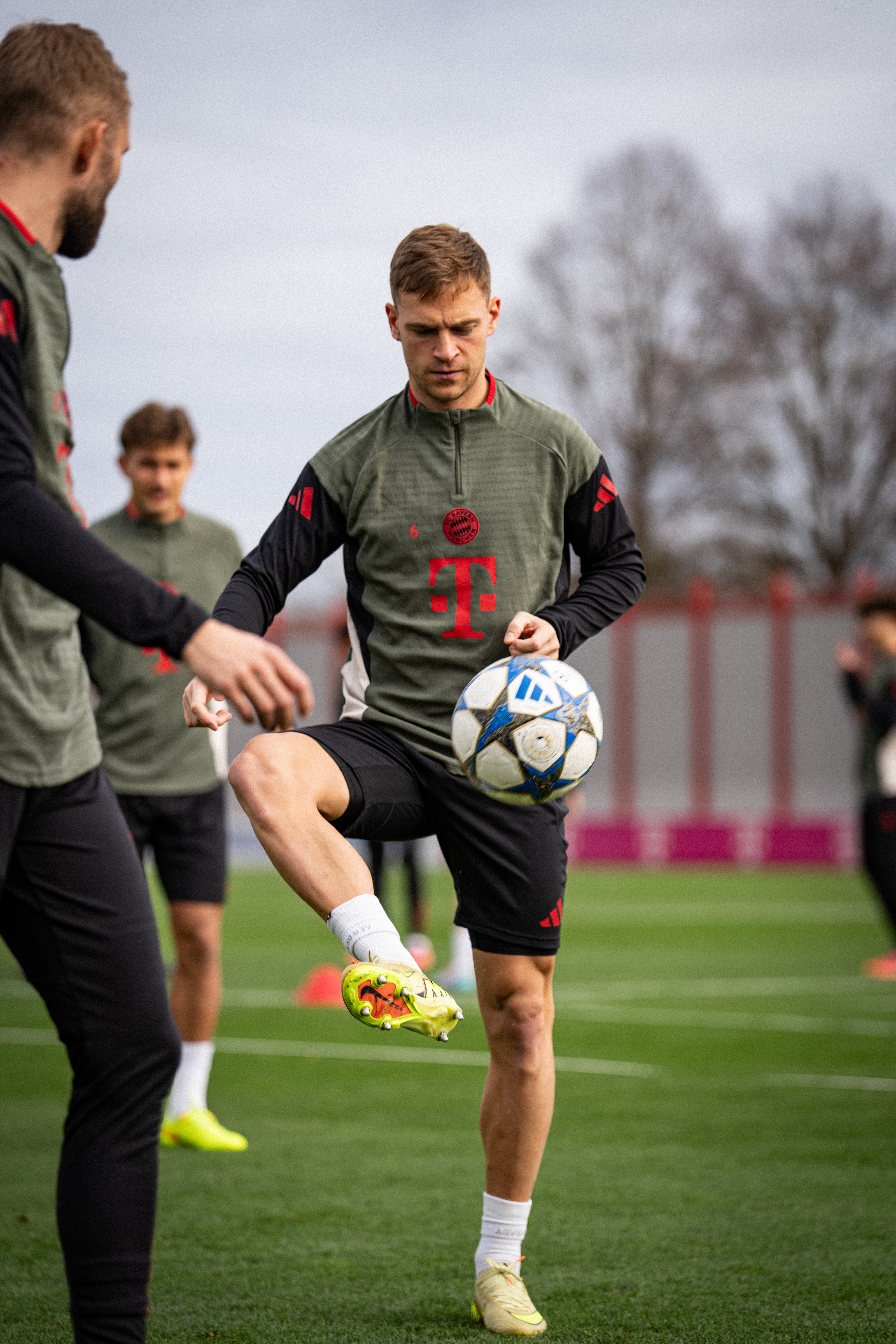Bayern Munich’s New Team Spirit Signals the End of Individual Egoism in Football, Challenging the Very Fabric of Competition and Unity in the Sport
Bayern Munich is currently experiencing a remarkable resurgence, having won its first fifteen competitive matches of the 2024/25 season. This impressive run sets the stage for an eagerly anticipated Champions League clash against Paris Saint-Germain. The transformation from a tumultuous period in recent years to a steady and confident team dynamic is largely attributed to the leadership of second-year coach Vincent Kompany.
This revival is underscored by the reflections of Joshua Kimmich, the team’s midfielder and captain-in-waiting, who recently spoke about the significant changes within the squad following Bayern’s latest victory — a commanding 3-0 win against Bayer Leverkusen. Kimmich’s comments highlight a shift in the team’s culture, emphasizing a collective spirit over individual brilliance, a stark contrast to the environment he encountered a decade ago.
When Kimmich joined Bayern ten years ago, the squad was filled with numerous world-class talents, making it challenging for young players to carve out their place. He recalls a time when individualism prevailed, with players often prioritizing personal accolades over team success. The current squad, however, showcases a different ethos. Kimmich noted that the players now exhibit a willingness to sacrifice personal glory for the greater good of the team. This evolution in mentality is critical not only for Bayern’s success but also for the broader implications it may have on the sport.
The notion of team spirit is not new to football; however, the degree to which it is emphasized can vary significantly from one club to another. Bayern’s recent successes suggest that a cohesive unit can outperform a collection of individual stars. This idea resonates with the age-old debate in sports about the balance between individual talent and teamwork. Historically, teams that have prioritized unity and collective effort tend to achieve sustainable success, while those that lean heavily on individual brilliance often face challenges in maintaining consistency.
Kimmich’s observations reflect a broader trend in football, where the importance of teamwork is increasingly recognized. The modern game has evolved, with tactical systems that require players to understand their roles within the team framework. The emphasis on pressing, fluid movement, and positional interchangeability has made it essential for players to work in harmony. Bayern’s current approach, characterized by a strong sense of camaraderie, is a testament to this evolution.
Moreover, the financial landscape of football has also influenced team dynamics. The influx of money into the sport has led to the acquisition of high-profile players, often resulting in inflated egos and competition for the spotlight. Clubs that can foster a culture of collaboration amidst such pressures are likely to thrive. Bayern’s success in cultivating a team-first mentality may serve as a model for other clubs grappling with similar challenges.
The implications of Bayern’s transformation extend beyond the pitch. In an era where individualism often reigns supreme, the club’s commitment to unity challenges the prevailing narrative in professional sports. The question of whether this approach can be replicated by other teams remains to be seen, but the early signs suggest that it may be a winning formula.
As Bayern prepares for its upcoming match against PSG, the focus will undoubtedly be on how their collective spirit holds up against one of Europe’s elite. The stakes are high, and the pressure is palpable, but the confidence derived from their recent performances could provide the edge they need. Kimmich’s belief in the team’s current ethos may very well be the driving force behind their ambitions this season.
In examining the broader context of football, Bayern’s situation raises questions about the future of team dynamics in the sport. Will more clubs adopt a similar philosophy, prioritizing collective effort over individual accolades? The answer may hinge on the outcomes of key matches and the performances of teams like Bayern Munich, which are redefining the standards of success in modern football.
As the season progresses, the narrative surrounding Bayern Munich will likely evolve, with their commitment to team spirit becoming a focal point in discussions about the changing landscape of football. The ongoing battle between individual talent and collective strength will continue to shape the sport, and Bayern’s journey may very well influence the direction of this debate for years to come. The evolution of their team culture serves as a reminder that in football, as in life, unity often triumphs over egoism.

Smells like team spirit in Bavaria.
Bayern Munich is off to a roaring start to 2024/25, having won its opening fifteen competitive matches heading into a blockbuster Champions League showdown against Paris Saint-Germain this week. It has been quite a transition from the turbulence of recent years to the steady aura of calm and inevitability the team exudes now under second-year coach Vincent Kompany.
Midfielder and captain-in-waiting Joshua Kimmich reflected on the changes in the wake of Bayern’s latest triumph — a 3-0 stomping of Bayer Leverkusen, the latest other team to wear the Bundesliga crown, with Bayern having deployed a heavily-rotated XI at that.
“When I joined ten years ago, we were incredibly well-stocked individually,” Kimmich said in remarks captured by Sky Germany journalist Kerry Hau. “We had 23, 24, 25 world-class players back then. As a young player, it was difficult for me to break through. But when I see now how we function as a team and how we rejoice with and for each other… when I see the way we bring the principles onto the pitch, how one runs for the other… then that’s already very special!
“That wasn’t so common; it was different ten years ago… back then we had a bit more egoism in the team. Now we have a lot of players who are outstanding in quality but put themselves at the service of the team.”
